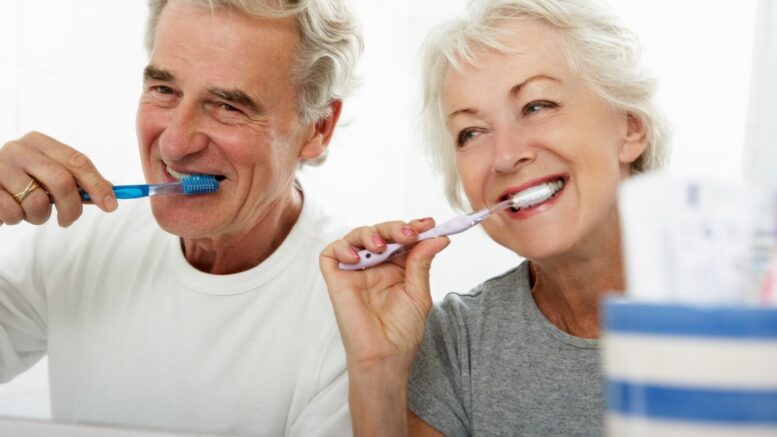As part of the natural aging process, your body undergoes numerous changes that affect various aspects, including oral health. And, despite all efforts to maintain a healthy smile to enjoy a good quality of life, issues that could threaten your teeth and gums may arise. Some oral issues that may surface among individuals in their 50s include tooth decay, gum disease, and dry mouth, which can affect the ability to eat and speak normally. Sometimes, they may indicate other health issues that can affect general well-being.
Therefore, it is important for you to be aware of these oral health issues and take proactive steps to deal with them as early as possible. If you’re closing in to the 50s, here are some oral health challenges to prepare for.
Aging Enamel
Your teeth endure constant use throughout, such as chewing, clenching, and exposure to high-acid foods and beverages. Over time, the enamel covering and protecting the living tissue of your teeth eventually deteriorates, becoming thin or showing signs of cracks. People in their 50s likely consult with a Fuquay Varina dentist or a dental professional in their area for advice on managing these issues.
Expect your teeth to take on a dull, dark, worn appearance or become highly sensitive. Once the enamel starts to thin out, the darker dentine will eventually show, causing your teeth to appear aged.
In some cases, the enamel might crack and peel away, exposing the dentine. Due to the porous and rough surface of the dentine, it’s prone to stains, plaque, and calculus buildup. Sadly, it increases your risk of gum disease, tooth decay, and tooth loss.
Gum Disease
Among the various oral health concerns, gum disease will likely affect those in their 50s. Gum disease affects the tissues supporting the teeth. It’s also known as periodontal disease, leading to swollen gums, bad breath, and tooth loss.

If you overlook the need to maintain good oral health, you have a higher risk of experiencing this condition. Aside from poor oral hygiene, other contributing factors include smoking and certain health conditions. You can lower the risk of developing gum disease by following an oral cleaning routine, eating a well-balanced diet, and avoiding smoking.
Tooth Decay
Tooth decay affects not only children but also adults. It begins as a bacterial and plaque buildup on the teeth, which releases acids that gradually erode the tooth enamel. Sadly, it can lead to pain, cavities, and possible tooth loss.
To prevent tooth decay, you must adhere to a strict oral care regimen. It includes regular brushing and flossing of your teeth, using fluoride toothpaste, and visiting your dentist for inspections and cleanings.
Dry Mouth
When the mouth cannot produce sufficient amounts of saliva, it’s a condition called dry mouth or xerostomia. This condition can lead to bad breath, difficulty swallowing, and a higher risk of developing gum disease and tooth decay.
An ideal way to minimize dry mouth is to drink plenty of water and use over-the-counter products such as mouthwashes or chew sugar-free gum.
Receding Gums
Among those in their 50s, receding gums is also a common oral health issue. Receding gums tend to develop once the gum tissue pulls away from the teeth, steadily exposing the tooth root. Sadly, it predisposes to increased sensitivity and tooth decay.
An effective way to manage receding gums is to maintain good oral hygiene, avoid aggressive brushing, and use a soft-bristled toothbrush. If you consult a dentist, some recommendations include gum grafting to manage the issue.
Bite Changes
In the long run, as a person ages, the teeth eventually shift due to wear, tooth loss, or diminishing jawbone density. Sadly, it can affect your bite and even lead to issues such as jaw pain or difficulty chewing. So, it may be best to see a dentist to assess your bite and suggest treatment options such as dental restorations and orthodontics to improve the alignment of your bite.
Oral Cancer
Cancer is one of the serious oral health concerns for many in their 50s. Oral cancer can develop in any part of the oral cavity, including the tongue, lips, and throat. Some risk factors for developing the condition include alcohol and tobacco use, excessive exposure to the sun, and human papillomavirus (HPV) infection.
To lower your risk, schedule regular dental appointments for timely detection. Your dentist can conduct screening for any suspicious changes during your appointments.
Final Thoughts
As a person reaches their 50s, it’s crucial to maintain good oral health for well-being and quality of life. Knowing about the challenges during this time will ensure you’re ready to take proactive steps to deal with them and preserve your oral health. By practicing good oral hygiene, modifying your lifestyle, and regularly visiting your dentist for check-ups, you can enjoy the benefits of good oral health for years.
